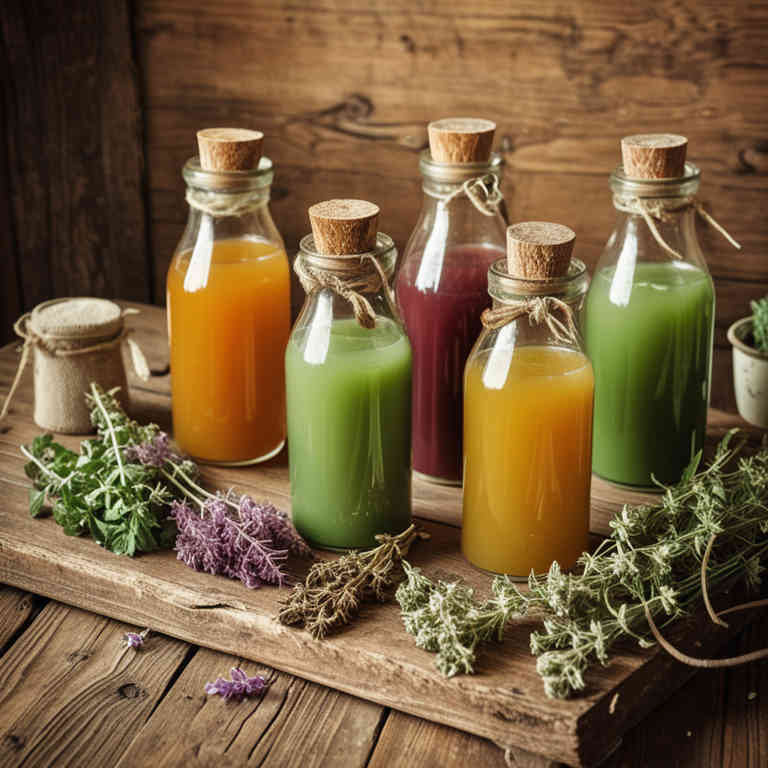Thymus vulgaris juice for medicinal use

Thymus vulgaris juice is a concentrated liquid extracted from the fresh or dried leaves and flowers of the common thyme plant.
It is rich in essential oils, flavonoids, and phenolic compounds, which contribute to its potent medicinal properties. In herbalism, it is used to support respiratory health, alleviate coughs, and treat minor infections due to its antimicrobial and anti-inflammatory effects. The juice is often diluted with water or honey and consumed internally or applied topically for its soothing and healing properties.
It is also valued for its ability to boost immunity and ease digestive discomfort.
Uses
Thymus vulgaris juice has been used to treat respiratory infections and digestive issues for centuries.
Historically, it was valued in ancient Egypt and Greece for its antimicrobial and antispasmodic properties. In traditional medicine, it was often used to alleviate coughs, sore throats, and gastrointestinal discomfort. Modern research has confirmed its potential as a natural remedy due to its high concentration of thymol, which exhibits strong antibacterial and antifungal effects.
Today, it is commonly used in aromatherapy and as a complementary therapy for various health conditions.
Benefits
Thymus vulgaris juice has health benefits such as boosting the immune system, reducing inflammation, and supporting respiratory health.
It contains antioxidants and essential oils that help fight off infections and promote overall wellness. This preparation may also aid in relieving symptoms of colds, coughs, and bronchitis due to its expectorant properties. Thymus vulgaris juice is known to have antimicrobial and antifungal effects, making it useful in treating various ailments.
Additionally, it may contribute to stress reduction and enhance mental clarity due to its calming and stimulating properties.
Constituents
Thymus vulgaris juice active constituents include thymol, carvacrol, and other phenolic compounds.
These components contribute to its antimicrobial, anti-inflammatory, and antioxidant properties. Thymol is known for its ability to combat bacterial and fungal infections. Carvacrol supports immune function and may aid in respiratory health.
This herbal preparation is often used to support overall wellness and as a natural remedy for various ailments.
Preparation
To make Thymus vulgaris juice, start by selecting fresh thyme leaves from a reliable source, ensuring they are free from pesticides.
Wash the leaves thoroughly under running water and pat them dry with a clean towel. Next, place the dried leaves in a blender or juicer and process them until a smooth liquid is obtained. Strain the mixture through a fine mesh sieve or cheesecloth to remove any solids.
Finally, store the juice in a sealed glass container in the refrigerator for up to a week.
Side Effects
Thymus vulgaris juice may lead to gastrointestinal discomfort, including nausea, vomiting, and stomach cramps, particularly when consumed in high doses.
It may also cause allergic reactions in individuals sensitive to thyme or other members of the Lamiaceae family. Prolonged use could potentially interact with certain medications, such as anticoagulants, increasing the risk of bleeding. In some cases, it may lead to skin irritation or rashes upon topical application.
It is important to consult a healthcare professional before using thymus vulgaris juice, especially for individuals with pre-existing medical conditions or those taking regular medication.